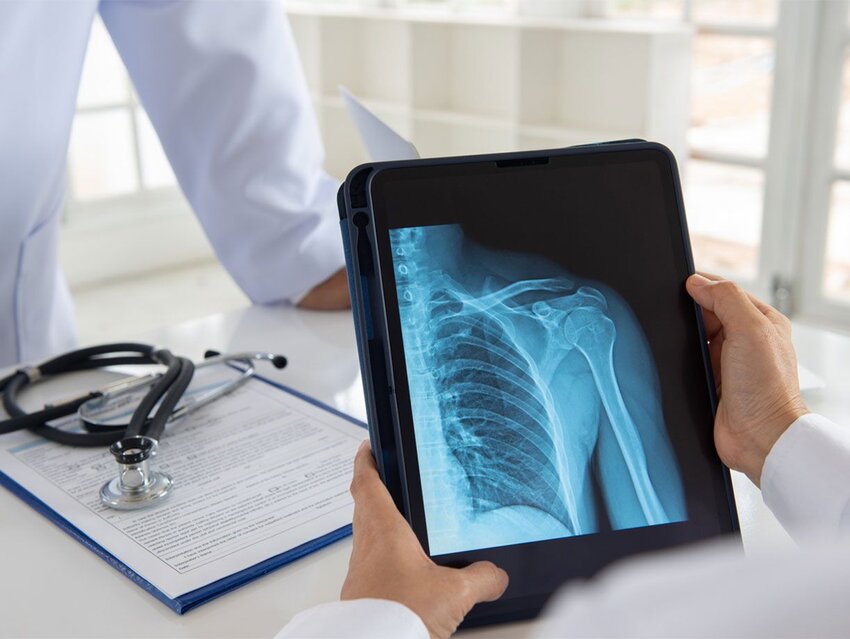The human body is strange — marvelously, mysteriously, miraculously strange. It protects us, embarrasses us, and does amazing things. As such, it’s worth knowing the related technical terms. From top to bottom, here are some body parts and functions you never knew.
Sphenopalatine ganglioneuralgia
All of those syllables can be shortened into what’s commonly referred to as “brain freeze.” Breaking down the etymology makes it a little less intimidating: “Sphen” pertains to the sphenoid bone in the cranium, “palatine” means “pertaining to the palate (the roof of your mouth),” “gangli” is a concentration of neural bodies known as the ganglion, “neur” means “nerve,” and “algia” means “pain.” Simple, right?
Otolaryngologists (AKA ear, nose, and throat doctors) believe this painful burst is felt when a large helping of really cold food or drink causes the blood vessels in the palate to constrict in an attempt to retain the body’s core temperature. Thankfully, the brain freeze is short-lived, and can be avoided by taking smaller bites of that frozen treat.
Rhinorrhea
An otolaryngologist may also be able to help with rhinorrhea, too. It’s a suspect-sounding name for an everyday problem: a runny nose. Hailing from the Greek rhino, which means “of the nose,” and the suffix -rrhoia, which means “flow.” It sounds more exotic than “the sniffles” when describing a symptom of allergies. However, if the runny nose is because of a spicy dish, it’s called “gustatory rhinitis,” and “epistaxis” is a nosebleed.
Lachrymation
This fancy word for crying comes from the Latin lacrimare, which means “weep,” or from lacrima, meaning “tear.” Speaking of tears, there are three different types of tears. “Basal tears” are the everyday, constantly produced tears that keep the surface of the eyes moist. “Reflex tears'' are produced as protection when something enters or irritates the eye, and” psychic tears” are the weepy response to something emotional.
Nictitate (or Nictate)
“Nictitate” is the verb for blinking or winking. It comes from a Latin word meaning “to blink.” When an eyelid twitches? That’s called a “blepharospasm.” Blepharon is Greek for “eyelid.”
Labyrinthitis
This term has nothing to do with getting lost and everything to do with an inner ear disorder that causes balance problems. It comes from the Greek labyrinthos, meaning “maze, large building with intricate passages.”
Sternutation
A sneeze or a sneezing fit is properly called a “sternutation.” The word comes from Latin and is a descendant of the verb sternuere, meaning “to sneeze.” Anything that causes sneezing is described as “sternutatory.”
Deglutition
“Deglutition” is the proper word for “swallowing.” It’s etymologically related to words like “glut” and “glutton,” and the Latin deglutire means “swallow down.”
Eructation
“Eructation” is the medical word for “burping.” Unfortunately for 9-year-olds everywhere, the Latin term ructabundus, excessive or unstoppable belching, never caught on in English.
Emesis
“Emesis” means “vomiting.” It comes from the Greek emein, which means “to vomit.” The similar-sounding “nemesis,” which means formidable rival or one that inflicts vengeance, is not etymologically related.
Cachinnation
We could all use a good cachinnation! It means a fit of loud, spontaneous, uproarious, unrestrained laughter. There might even be some lachrymation.
Horripilation
Despite the terrifying sounding name, this is simply the medical term for goosebumps. Tiny muscles at the base of each hair follicle contract when cold or scared. While humans have evolved to not need this reflex for survival, it does come in handy for animals to keep warm by raising an insulating fur coat or appearing bigger to predators. “Horripilation” comes from the Latin horrere for “stand on end” and pilus, or “hair.”
Borborygmus
It might sound like something from the Swedish Chef, but it’s also known as a rumbling in the stomach or bowels. The sound is made when the contents of the intestines (food, liquid, and gas) are pushed along by waves of muscle contractions. When the stomach is empty, the sound is usually louder. Fun fact: Queasy stomach rumbles were called “wambles” in Tudor-era English, and feeling unwell was called “wamble-cropped.”
Obdormition
This is when a limb “falls asleep” and becomes numb due to pressure on a nerve. The resulting “pins and needles” sensation is called “paraesthesia.”
Pandiculation and Crepitation
“Pandiculation” is the term for the different motions upon just waking up – yawning, stretching, and cracking your joints. It’s also known as “crepitation,” from the Latin for “rattle, crack.” “Decrepit” shares the same root word.
Gowpen
This is the bowl shape made when putting both hands together, as if to cup water for a drink. It comes from the Old Norse word gaupn.
Featured photo credit: utah778/ iStock

